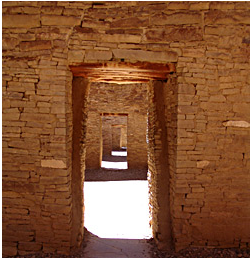Publication Date
10-31-2016
Abstract
Sleep problems afflict millions world-over. Treating this has been difficult because there is no consensus definition for “normal” sleep. People can vary in their personal sleep need, but the determinants of variation in sleep duration are largely unknown, as is the criteria to determine how much variation is normal. Given that most diurnal mammals (including primates) appear to sleep from sunset to sunrise, the leading explanation for sleep pathology in the post-industrial world has been that electronics, especially light illuminating devices, substantially reduce sleep duration. This assertion has heretofore only been tested experimentally. This research aims to resolve this issue by testing a proposed tradeoff model of sleep duration: individuals can decide when and how much time they want to invest in sleep versus other types of activity, depending on the relative costs and benefits to each. The specific alternative behaviors hypothesized in this dissertation are that sleep inhibition becomes adaptive when 1) food scarcity creates a sufficiently high opportunity cost for nighttime food acquisition and 2) dangerous environments incentivize maintenance of higher nighttime vigilance.
To test these hypotheses in an evolutionarily informative ecology, research was conducted within small-scale subsistence (humans) populations: Hadza of Tanzania, San of Namibia, and primarily, Tsimane in Bolivia. Using the validated method of sleep accelerometry, sleep was recorded in free living conditions. To supplement this data, structured interviews were designed to measure nighttime behavioral profile, nighttime hunger, and sleep interruption. In all three study populations, sleep durations (5.-7.1h / night) closely resembled one another and even the typical rates observed in post-industrial societies. Among Tsimane, during periods of food scarcity, nighttime food production is significantly more common, but associated with severely shortened sleep duration. Tsimane also wake during the night due to unpredictable causes, especially when they sleep in houses lacking walls. Analyses suggest that these people may be going to be earlier and spending longer in bed to buffer total sleep against any possible sleep interruptions. Together, I hope that this research can create a foundation for studying sleep as a highly flexible phenotype (behavior), optimized against important but highly variable alternatives.
Keywords
sleep, hunter-gatherer, tsimane, san, ecology
Document Type
Dissertation
Language
English
Degree Name
Evolutionary Anthropology
Level of Degree
Doctoral
Department Name
Anthropology
First Committee Member (Chair)
Hillard S. Kaplan
Second Committee Member
Michael Gurven
Third Committee Member
Melissa Emery-Thompson
Fourth Committee Member
Jane B. Lancaster
Fifth Committee Member
Joe Alcock
Sixth Committee Member
Jerome Siegel
Recommended Citation
Yetish, Gandhi. "Sleep as an Evolved Behavior: Ecological Opportunity Costs and Sleep Optimization." (2016). https://digitalrepository.unm.edu/anth_etds/96

